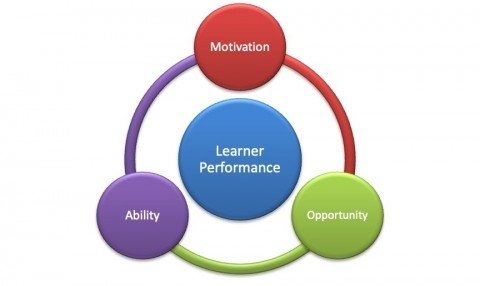A Recipe for Designing Motivating Learning Experiences to Enhance Learner Performance: Lessons Learned from the 2021 International Association of Medical Science Educators (IAMSE) Annual Conference
MedEdPearls September 2021: What learner motivation strategies might you employ this fall to enhance your learners’ performance?
During his plenary at the June 2021 IAMSE annual conference entitled “Top Ten Ways an ID [Instructional Designer] can help you Define the New Normal,” Dr. Atsusi Hirumi reminded us that learner motivation is as important as ability (i.e., skills and knowledge) and opportunity in determining performance.

How can health professions educators continue to motivate students to learn, especially during these tumultuous times? Dr. Hirumi suggests that instruction should adhere to the ARCS model of motivational design:
- Gain and sustain ATTENTION: We can gain learner attention using real-world examples, humor, hands-on activities, critical thinking exercises, and by challenging learner past experiences, preconceived notions, and/or biases. We can sustain learner attention and interest by varying our teaching methods within the same activity and across our teaching footprints. Be unpredictable!
- Explain the RELEVANCE of the content to learner needs: We can help learners link content with both their present (e.g., course goals) and future needs (e.g., professional identity formation) through goal orientation, matching their motivation for learning (i.e., achievement, power, or affiliation), affording learners choice in instructional strategy, linking new information with previous experiences, and modeling the use of content.
- Foster CONFIDENCE in the probability for learner success: We can help learners gain confidence in measuring the probability of their own success by communicating learning standards and evaluation criteria, providing multiple and varied experiences as well as timely feedback, and affording learners personal control over their learning process.
- SATISFY learner expectations: We can ensure learner satisfaction of their achievements during the learning process by establishing intrinsic enjoyment through fun activities; offering extrinsic praise, rewards, and/or content reinforcement opportunities; and ensuring equity in standards for success (e.g., consistent assessment rubrics).
What learner motivation strategies might you employ this fall to enhance your learners’ performance? Comment below or share your ideas via Twitter at #MedEdPearls!
About the MedEdPearls Author

Leah Sheridan
PhD
- Professor, Northeast Ohio Medical University
- Associate Dean for Medical Education, Northeast Ohio Medical University
- Jean Bailey, PhD – Virginia Commonwealth University School of Medicine
- Carrie Bowler, EdD, MS, MLSCM (ASCP) – Mayo Clinic School of Continuous Professional Development
- Kristina Dzara, PhD, MMSc (Educators ’16; Assessment ’16; HCE 2.0 ’17) – Saint Louis University School of Medicine
- Shanu Gupta, MD, SFHM – University of South Florida Morsani College of Medicine and Tampa General Hospital
- Jennifer Hillyer, PhD – Northeast Ohio Medical University
- Larry Hurtubise, PhD, MA (HCE 2.0 '16) – The Ohio State University
- Anna Lama, EdD, MA – West Virginia University School of Medicine
- Machelle Linsenmeyer, EdD, NAOME (Assessment ’07) – West Virginia School of Osteopathic Medicine
- Skye McKennon, PharmD, BCPS, ACSM-GEI – Washington State University Elson S. Floyd College of Medicine
- Rachel Moquin, EdD, MA – Washington University School of Medicine
- Stacey Pylman, PhD – Michigan State University College of Human Medicine
- Leah Sheridan, PhD – Northeast Ohio Medical University
- Lonika Sood, MBBS, MHPE – Washington State University Elson S. Floyd College of Medicine
- Mark Terrell, EdD – Lake Erie College of Osteopathic Medicine
- Stacey Wahl, PhD – Virginia Commonwealth University School of Medicine
Harvard Macy Institute
Harvard Macy Institute
The Harvard Macy Institute educates, connects, and serves health care leaders around the globe by providing advanced faculty development programs, thought leadership, and impactful networking opportunities.
6 Programs

